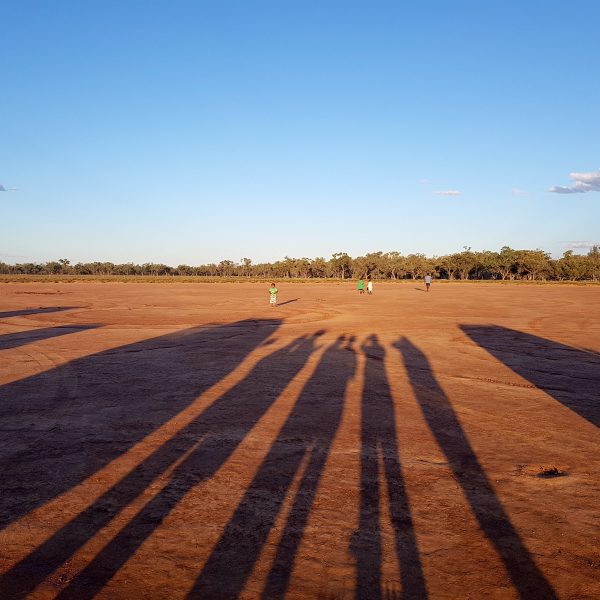First Nations children’s rights need more recognition – SNAICC

Speaking on the occasion of 26 January, SNAICC – National Voice for our Children has said it does not mark 26 January as a day of national celebration when the impacts of colonisation on Aboriginal and Torres Strait Islander people, particularly children, are profound and long lasting.
Choosing to refer to 26 January as Survival Day, SNAICC noted the “undisputed evidence” that Aboriginal and Torres Strait Islander children suffer from intergenerational trauma from the continued removal from family, culture and kin – the impact of historical displacement and discrimination since the arrival of the First Fleet on 26 January 1788.
The day, a spokesperson for SNAICC said, is a reminder of “the ongoing struggle for recognition of the rights of our children,” adding that Aboriginal and Torres Strait Islander children have rights to their culture, family connections and identity. Protecting and promoting these rights is paramount to supporting their wellbeing and opportunity to live happy and healthy lives, the spokesperson continued.
Early childhood education was singled out by SNAICC as being a core element in supporting positive outcomes for Aboriginal and Torres Strait Islander children, enabling them to thrive.
The advocacy group also used the occasion to call for an end to “the over-representation of Aboriginal and Torres Strait Islander children in out-of-home care”, something it says will require greater investment in early intervention and family support services through Aboriginal community-controlled organisations; and, greater support to keep children connected to culture, community and kin.
SNAICC CEO Richard Weston spoke about the range of adverse experiences impacting Aboriginal and Torres Strait Islander communities, from poverty, through to violence, drug and alcohol issues and homelessness. Without an opportunity to heal from the resulting trauma, he said, its impact can deeply affect children’s brain development causing life-long challenges to the way they function in the world.
“It is experienced within our families and communities and from one generation to the next” Mr Weston continued, saying “these adverse experiences drive our children’s over-representation in government managed systems.”
According to The Family Matters Report 2019, Aboriginal and Torres Strait Islander children are 10 times more likely to be in out-of-home care than non-Indigenous children and more likely to have contact with juvenile justice and criminal justice, he added.
“Aboriginal and Torres Strait Islander children need to feel strong and safe in their identities to thrive but how can this be the case when we celebrate a date that ultimately marks a time for us when the bonds between child, family and community were destroyed?”
SNAICC Chair and CEO of the Victorian Aboriginal Child Care Agency (VACCA) Muriel Bamblett said that despite the adversity faced by Aboriginal and Torres Strait Islander people “we are inspired by leaders such as singer and songwriter Archie Roach, named Victorian Australian of the Year 2019. Removed from his family as a child, he endured difficulties throughout his life, but continues to campaign for Indigenous rights and give a voice to Aboriginal and Torres Strait Islander people.”
SNAICC acknowledged the contribution of the Coalition of Peaks on Closing the Gap, and the Australian Government’s support for the Priority Reforms as “positive steps towards establishing clear targets to improve outcomes for Aboriginal and Torres Strait Islander children.”
The recent bushfire crisis showed how important Aboriginal community-controlled organisations are in playing a role, giving an opportunity for communities to pull together to support one another.
“Our Country and community is part of who we are, and it is so important for our children to feel connected to culture and community. Our services go above and beyond to fight the disadvantage that Aboriginal and Torres Strait Islander children face. Our children are 2.6 times more likely to be developmentally delayed at the age of five and are attending child care services at half the rate of non-Indigenous children,” Adjunct Professor Bamblett said.
“The introduction of the New Child Care Package and Activity Test has made access to early years services harder for our families, and this isn’t good enough. By working in partnership with the Morrison Government through shared access to data and decision-making, we can make inroads towards closing the gap for our children,” she added.
SNAICC closed their statement by calling on the Australian Governments to “acknowledge Aboriginal and Torres Strait Islander rights and sovereignty over this land, to celebrate our Indigenous culture and Country, and work towards closing the gap on inequalities impacting our children through greater investment in their wellbeing.”
To read the statement in full, please see here.
Popular

Workforce
Policy
Quality
Practice
Provider
Research
ECEC must change now, our children can’t wait for another inquiry
2025-07-02 07:47:14
by Fiona Alston

Practice
Provider
Quality
Workforce
Leading with Curiosity: How distributed leadership is redefining the future of early childhood education
2025-07-03 07:42:07
by Contributed Content

Events News
Workforce
Marketplace
Practice
Quality
Provider
Research
An exclusive “Fireside Chat” with ECEC Champion Myra Geddes
2025-07-01 11:25:05
by Fiona Alston













